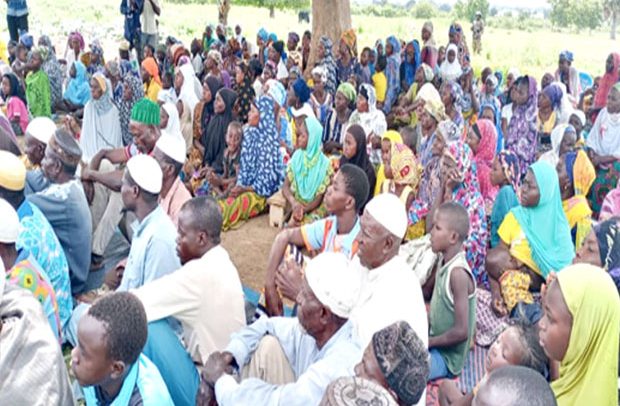The convergence of some one thousand, seven hundred Burkinabes on the Upper East town of Widnaba defines clearly the enormous task on security agencies especially, personnel of the Ghana Immigration Service (GIS).
The GIS, especially, is mandated to protect our frontiers by managing migration issues in conformity with international conventions to which Ghana is signatory.
Unfortunately, in recent times, the heightened activities of terrorist elements in neighbouring countries have gotten the security agents busier.
International conventions demand that asylum seekers are not turned away but treated humanely. With the terrorist threats in Burkina Faso, however, adhering to the foregone without compromising the country’s security poses a fresh challenge to GIS personnel as they stand guard on our frontiers.
The preservation of our territorial integrity is a natural demand which our security agents especially, the Armed Forces must uphold by all means.
The budgetary constraints and their effects on supply of adequate logistics notwithstanding, GIS personnel have continued to give their best to the country.
By this commentary, we ask of government to do more to prime security agents especially, GIS personnel to discharge their mandate efficiently in view of the emerging security threats posed by terrorists and influx of asylum seekers.
As pointed out in an earlier commentary, we have observed the marked improvement in the tooling and training of GIS personnel under the present political administration.
The Interior Ministry, under which the GIS operates, has not relented in its efforts to enhance the ambience in which personnel operate. Under the prevailing circumstances against the sophistication of terrorists operating in the Sahelian parts of West Africa, the need for government to do more for the security personnel cannot be overlooked.
Manouverability of personnel, coupled with necessary equipment, will enhance morale, something government should consider and prioritise for effective reconnaissance and fighting patrols.
With close to two thousand asylum seekers converging upon a Ghanaian border town, we can rightly describe it as a tip of the iceberg.
With porous borders, many could have infiltrated without being seen. Were we to be faced with the influx of only asylum seekers, we would not have bothered as much as we are doing now, but for the apprehension of bad elements taking advantage of the situation and compromising our national security.
Education of frontier dwellers about the menace posed by terrorists next-door has still not been brought to the front-burner as we suggested earlier.
Our security management will be incomplete unless such residents understand the situation and act appropriately.
How do such persons identify possible terrorists and what should they do, under the circumstances? These and other details should be imparted to frontier dwellers.
The National Commission For Civic Education (NCCE) announced such assignment but as to how they have commenced, and with what effect, we are yet to know.
The terrorist threat is real and the earlier government adds to the existing logistical support to GIS personnel, the better for us.
Taking care of the asylum seekers is a fresh financial demand upon government.


